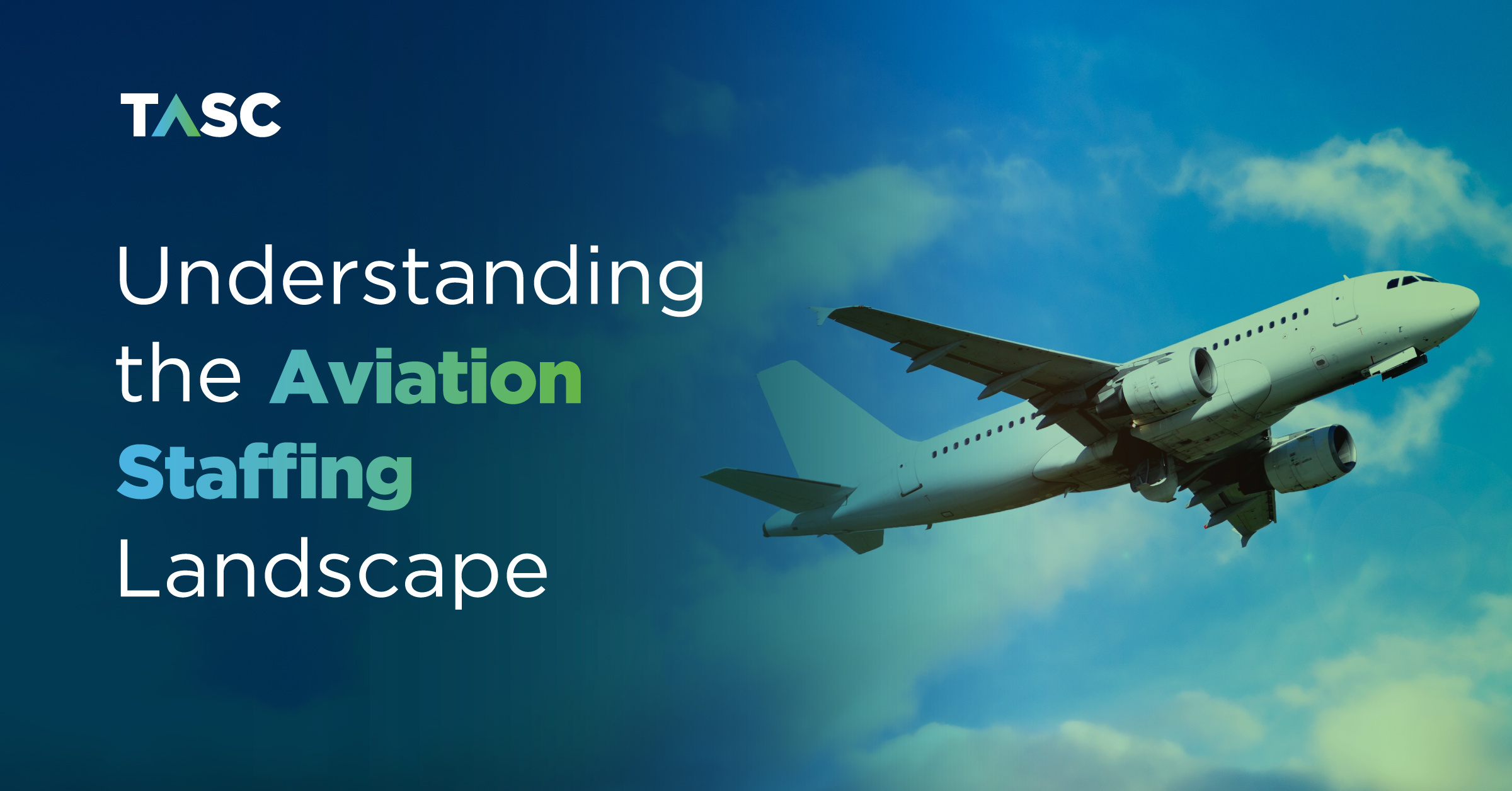Understanding the Aviation Staffing Landscape: Key Trends and Insights
Over the past five years, the aviation sector has experienced significant changes, and overcome unexpected hurdles, especially during the COVID-19 pandemic. However, it has managed to prevail and will continue to do so.
The aviation staffing landscape looks promising, thanks to increased demand for freight and commercial services. However, the industry's growth is closely tied to its ability to recruit and retain skilled talent. During the pandemic, many people lost their jobs, and as a consequence, many experienced aviation professionals didn’t return to work in aviation even after things had settled down.
It is a recruitment issue that requires innovative strategies that are effective enough to attract and retain employees capable of upholding the highest standards of quality and safety protocols.
Understanding current recruitment trends and market dynamics is essential for success in aviation hiring. In today’s blog, we’ll take a closer look at the key trends in aviation recruitment and offer insights that can help make better sense of the job market.
Ongoing Need for Pilotson
The aviation industry's future depends significantly on having enough qualified pilots to meet the growing demand for transporting passengers and goods worldwide. The need for pilots has been a prominent trend in recruitment over recent years.
The demand will remain steady as the sector continues to expand over the next decade. The market will see a surge in pilot roles, and companies will have to actively work on developing effective recruitment strategies to attract and retain pilots who can handle the job's demands.
With increased competition for candidates, job offers in the flight industry will likely become more attractive, not just in terms of salary but also in flexibility and benefits. Aspiring pilots will find themselves with plenty of options, so employers will have to offer experiences that are at least on par with, if not better than, their competitors to secure top talent.
Seeking Eco-Conscious Growth
Sustainability is one of the prominent trends not just in aviation, but in all industries. Eco-conscious growth in aviation would mean developing the industry in ways that align with essential sustainability goals, thereby minimizing its environmental impact.
It would require making a series of changes, such as adopting more sustainable aircraft, fuels, and production methods to meet the rising demands for lower carbon emissions.
When looking at it from the recruitment point of view, aviation companies are expected to seek out candidates who have expertise in sustainable practices and cutting-edge technologies. Electric aircraft, for instance, represent a significant step forward, but there are many other avenues for making air travel greener. It will be up to innovative designers and engineers to lead this charge with their forward-thinking ideas.
Overcoming Aviation Staff Shortages
One of the aviation recruitment trends points towards persistent staff shortages, especially in filling pilot roles. The demand for experienced pilots will not decline anytime soon, but a trend is emerging in how companies are planning on addressing and managing these shortages.
A promising strategy is long-term recruitment planning, which involves getting candidates into the pipeline early and focusing on their retention throughout their careers.
It would mean not only recruiting and training entry-level candidates but also enhancing learning and development opportunities and improving benefits to keep employees engaged and committed.
Creating Efficient Airports for the Future
The aviation industry is expected to keep expanding over the next two decades, leading to more passengers passing through airports. Many airports are already running at full capacity, and with expansion often not a feasible option, innovative solutions for managing and adapting airport operations are essential.
From a hiring standpoint, this means companies will be on the lookout for candidates who can envision and implement strategies to handle the growing passenger numbers. Whether through design improvements or new systems for directing and managing crowds, airport and aircraft crew roles will see an uptick. In terms of hiring for such specialised roles, companies stand to benefit the most by partnering with an aviation recruitment agency.
Seeking Candidates with AI Expertise
AI is making waves in every sector, and aviation is no different. From streamlining passenger experiences to enhancing safety and efficiency, AI offers a world of possibilities.
Concerns about AI replacing jobs are common, but the technology is set to handle routine tasks, allowing human workers to engage in more creative pursuits. Plus, as AI becomes more prevalent, roles in AI maintenance and installation will grow, offering new job opportunities.
The demand for AI expertise in aviation is set to rise, so candidates must develop their AI skills. Employers should focus on hiring AI-experienced professionals early, ensuring their teams are equipped with the technical knowledge needed for future advancements.
Licensed Aircraft Engineers: Bridging the Talent Gap
Safety and reliability are extremely important in aviation, which makes the recruitment of licensed aircraft engineers a top priority. These professionals are essential for maintaining safety and quality standards. However, similar to the pilot shortage, there’s a dearth of qualified licensed engineers, compelling companies to go the extra mile to find suitable candidates.
For aviation employers, offering competitive employment packages is key. It’s also crucial to make sure job advertisements clearly state the necessary qualifications and accreditations, ensuring you attract the right candidates and avoid wasting time.
Focusing on Retaining Aviation Staff
As mentioned earlier, the industry will continue to face a shortage of candidates, and retaining employees is the only way to move forward. Attracting new talent is important, but many former employees haven’t returned post-pandemic, making retention a top concern.
A key trend is investing in the employee experience to enhance retention. Besides offering training and better benefits, companies are dedicating resources to address the challenges caused by staffing shortages, ensuring that current employees aren’t overworked.
Moving forward, employers must prioritize the quality of their employees’ experiences and be prepared to invest in their well-being. This positive employee experience should also be highlighted in the recruitment strategy to show how the aviation sector’s staffing issues are being addressed.
Wrapping Up
The aviation industry has demonstrated extraordinary resilience, overcoming past challenges with continuous innovation at the core of its success. Current recruitment trends are a testament to this progress. To secure top talent and stay ahead of future demands, companies must not only understand these trends but also adapt their recruitment strategies accordingly.
TASC Outsourcing is your trusted partner in this journey. With our expertise in the aviation sector and cutting-edge recruitment solutions, we can help you navigate these trends and optimize your hiring strategy, ensuring you attract and retain the best candidates to fuel your continued success.




.jpg)
